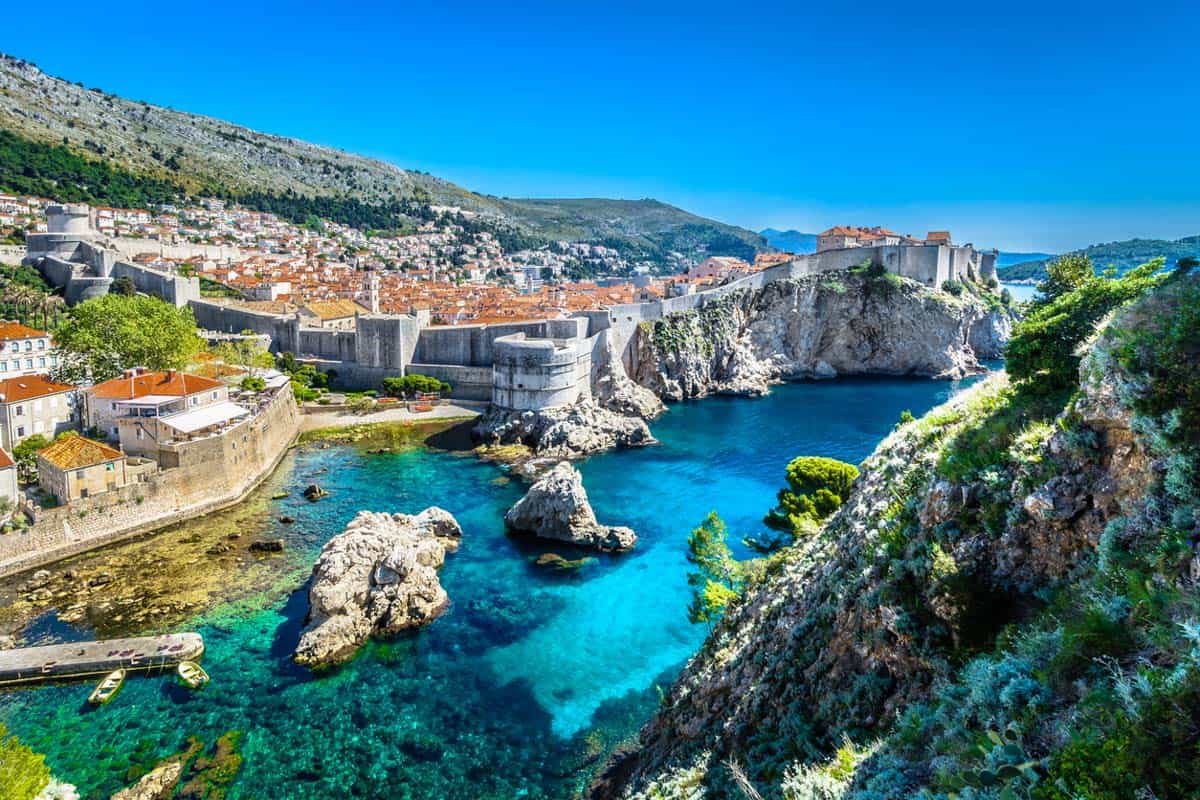Earlier this week, the EU officially recommended new restrictions on U.S. travelers due to rising cases.
Since the recommendation, itâs been a mixed reaction from the EU member states. Italy was the first country to introduce new rules, while Ireland and Croatia say they will not impose new restrictions on American travelers.

Recap â EU Recommends New Restrictions On American Travelers
On Monday, the EU officially removed the U.S. from its safe list due to a rapid rise in Covid-19 cases in recent months.
This is only a recommended guidance (not mandatory), so individual countries/member states will each determine their guidelines for U.S. travelers and visitors from other nations.
Croatia Refuses To Implement EU Recommendations

In a meeting of interior ministers held in Brussels, the Croatian Minister, Davor BožinoviÄ, said that his country would not follow the EUâs recommendations.
âThis is a recommendation. There have been situations before when Croatia did not follow the EU recommendations, so when it comes to American citizens, it will not this time either. We know that Americans mostly come to us as tourists, which means that they have met all the epidemiological conditions for coming,â
To enter Croatia, travelers must present either proof of vaccination, a negative PCR or antigen test performed within 72 hours of departure, or proof of recovery.

Croatia was the first country in Europe to set an expiry date for the vaccination certificate, for 210 days after the traveler was vaccinated with the second shot of the Covid-19 vaccine, so any travelers using proof of vaccination for entry should be aware of this.
Croatia has always beat to the tune of its own drum in regard to entry requirements and has rarely taken the advice of the EU. American travelers have been allowed to enter Croatia for non-essential travel throughout the pandemic, a great contrast to many of its fellow EU nations. This has put Croatia on the map for many US-based tourists, turning Croatia into an extremely popular hot-spot destination.
Ireland Will Not Tighten Restrictions For U.S. Travelers
The Irish government has said that it will not reinstate travel restrictions on travelers from the United States.
The Department of Health indicated that Ireland will not make the move to change rules based on the EU Council vote, stating that this vote was within the Schengen framework, âand therefore Ireland did not take part in its adoption.â

âFurthermore, the EU recommendation is non-binding and Member States retain control over their own border restrictions,â the department said.
Ireland opened up to American travelers in July. The current entry requirements for Ireland are a passenger locator form, and proof of vaccination or recovery.
If travelers cannot provide proof, they are required to present a negative PCR test taken with 72 hours and quarantine for 14 days which can be shortened upon receipt of a negative PCR test taken from day five onwards after arrival into the country.

Portugal Will Remain Open
Along with Ireland and Croatia, Portugal also says they will remain open to U.S. tourists. All U.S. visitors must present a negative COVID test, take 48 hours prior to departure.
âPortugal has confirmed that discretionary, non-essential travel is still allowed, provided visitors present a negative COVID-19 test result at boarding and entry into the countryâ

Which EU Countries Are Imposing Restrictions?
While some countries are remaining open to American travelers, several are tightening travel restrictions in light of the new guidance.
Italy was the first country to put stricter restrictions on US travelers. Travelers are now required to provide a PCR or antigen test before reaching the country regardless of vaccination status, along with a digital entry form.

Bulgaria announced it would move the U.S. into its âred zoneâ and prohibit travel from the United States. As of Wednesday, all people from the U.S., regardless of vaccination status, cannot enter Bulgaria.
Before the recommendation, Germany added the U.S. to its âhigh-riskâ travel list and Czechia tightened restrictions on U.S. travelers, with unvaccinated travelers no longer permitted to visit the country for non-essential reasons such as tourism.
Any American travelers with a trip booked for Europe should keep a careful eye on changing entry requirements over the next days/weeks as more EU countries announce their rules.

